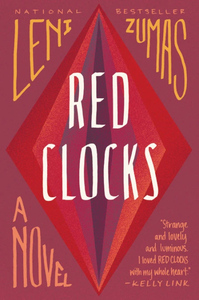Take a photo of a barcode or cover
challenging
emotional
tense
fast-paced
Plot or Character Driven:
Character
Strong character development:
Yes
Loveable characters:
Yes
Diverse cast of characters:
Yes
Flaws of characters a main focus:
Yes
This book is very good. It's well written and the characters are well developed with relatable perspectives, but it's hard to read right now. The circumstances have gotten less dystopian and more realistic since it was published, which makes it hard for me to enjoy.
challenging
emotional
medium-paced
Plot or Character Driven:
Character
Strong character development:
Yes
Loveable characters:
Complicated
Diverse cast of characters:
Yes
Flaws of characters a main focus:
No
Compelling story, I really couldn't put it down. Well written from each POV.
If you need to know how each character lives out the rest of their lives (like me), then you may be a little disappointed at the end. The story is well written that it's worth it.
If you need to know how each character lives out the rest of their lives (like me), then you may be a little disappointed at the end. The story is well written that it's worth it.
A dystopia that is little changed from the present reality. The only only real change is the outlawing of abortion, restrictions on adoption and outlawing IVF. This makes the world presented not only real and believable, but frighteningly plausible. The novel uses a very remote, detached voice, which initially makes the characters slightly remote and even unlikeable but as it progresses this detached voice adds to the chill of the story.
The literary style, the excerpts from the biography, the character of ‘The Mender’, and other little bits can all seem a little pretentious at first but as you get into the story this all adds to the feeling of the story.
The literary style, the excerpts from the biography, the character of ‘The Mender’, and other little bits can all seem a little pretentious at first but as you get into the story this all adds to the feeling of the story.
Rating: 4.5
She knew - it was her job as a teacher of history to know - how many horrors of history are legitimated in public daylight, against the will of most of the people.
Zumas' sophomore novel has been compared to The Handmaid's Tale, which is an unfair one. Atwood bolstered a work of science fiction but this one is real. But it's more than that. Atwood's tale is one that is first and foremost a cautionary tale against banning abortion and what it means to politicize a woman's body. Zumas' work is also about abortion and male political dominance, and if you've read Red Clocks' press, you'll see that for yourself. But it's also about witches and the blood we've shed from women. It's about being a good mother and wanting to be a mother. It's about wanting love and also rejecting it. It's about the American justice system and how it treats the bodies of women differently than men, and Black bodies worse than White. Yet Red Clocks is also about whales and ice, falling in love with nature and reconnecting with our family. It's about freedom. And ultimately, about how all of these are valid forms of feminine expression. Of human expression.
Zumas' characters are deliciously life-like. They bleed real blood and suck in real air. They feel real because they are, like lighthouses and dreams, not just one thing. They make good decisions and bad ones, piss people off and love them, and make you root for them as often as against. I, of course, had favorites: Ro and Gin, but I enjoyed reading about each of them the same. Eivør's story, told through rearticulated bits either directly from her hand or Ro's, was a fascinating way to deliver the narrative of a woman trapped under the weight of misogyny. It proved women have always been relegated as tools to men, and not allowed to stand on their own merits and opinion. And yet, the fact that she still captured the attention of Ro, all these years later, proves that even the women we burn still exist, boldly, in the ashes.
The only thing I took an issue with was the adoption law. I didn't fully understand its inclusion and I think the story could have been compelling without its inclusion. Single women already face a difficult battle with the adoption system, and it felt like a missed opportunity to highlight this. The world-building overall felt a little lazy and forced. Zumas trusted us masterfully to read into her prose and surrender to the journey of her words, but seemed to waver in that trust when it came to understanding the laws and rationale behind them. I almost wish that they had been left out entirely, and that we, as readers, could absorb the impact of the laws more than the implementation. Although, I suppose without it, Red Clocks would be less effective as a cautionary tale.
At a time when all feels lost, Zumas reminds us that hope is found after our wits have long since ended. She reminds us to turn to one another, and sense the blood coursing through each other's veins. Reminds us before it's too late to turn back.
She knew - it was her job as a teacher of history to know - how many horrors of history are legitimated in public daylight, against the will of most of the people.
Zumas' sophomore novel has been compared to The Handmaid's Tale, which is an unfair one. Atwood bolstered a work of science fiction but this one is real. But it's more than that. Atwood's tale is one that is first and foremost a cautionary tale against banning abortion and what it means to politicize a woman's body. Zumas' work is also about abortion and male political dominance, and if you've read Red Clocks' press, you'll see that for yourself. But it's also about witches and the blood we've shed from women. It's about being a good mother and wanting to be a mother. It's about wanting love and also rejecting it. It's about the American justice system and how it treats the bodies of women differently than men, and Black bodies worse than White. Yet Red Clocks is also about whales and ice, falling in love with nature and reconnecting with our family. It's about freedom. And ultimately, about how all of these are valid forms of feminine expression. Of human expression.
Zumas' characters are deliciously life-like. They bleed real blood and suck in real air. They feel real because they are, like lighthouses and dreams, not just one thing. They make good decisions and bad ones, piss people off and love them, and make you root for them as often as against. I, of course, had favorites: Ro and Gin, but I enjoyed reading about each of them the same. Eivør's story, told through rearticulated bits either directly from her hand or Ro's, was a fascinating way to deliver the narrative of a woman trapped under the weight of misogyny. It proved women have always been relegated as tools to men, and not allowed to stand on their own merits and opinion. And yet, the fact that she still captured the attention of Ro, all these years later, proves that even the women we burn still exist, boldly, in the ashes.
The only thing I took an issue with was the adoption law. I didn't fully understand its inclusion and I think the story could have been compelling without its inclusion. Single women already face a difficult battle with the adoption system, and it felt like a missed opportunity to highlight this. The world-building overall felt a little lazy and forced. Zumas trusted us masterfully to read into her prose and surrender to the journey of her words, but seemed to waver in that trust when it came to understanding the laws and rationale behind them. I almost wish that they had been left out entirely, and that we, as readers, could absorb the impact of the laws more than the implementation. Although, I suppose without it, Red Clocks would be less effective as a cautionary tale.
At a time when all feels lost, Zumas reminds us that hope is found after our wits have long since ended. She reminds us to turn to one another, and sense the blood coursing through each other's veins. Reminds us before it's too late to turn back.
This book was *so* interesting. Also terrifying because of its all-too-plausible world in which women's rights are severely curtailed. The male characters were a bit one-note.
Found this slow and hard to read, story quite difficult to follow with no engaging characters. A shame.
A little difficult to follow since we don’t know all of the characters names at the beginning. Each chapter follows a different woman, the mender, the teacher, etc. I wish there were a family tree to show us how they’re all related.





